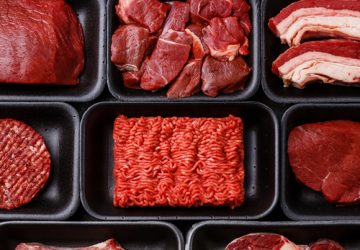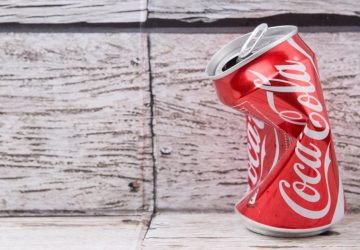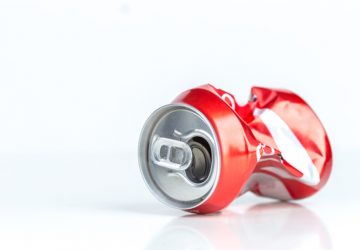Attention parents and teachers! The self-described “food police” at the Center for Science in the Public Interest (CSPI) have added whole and two-percent milk to the list of “poor nutritional quality” beverages in their crosshairs. This according to a soon-to-be released CSPI report called “Dispensing Junk,” which targets this basic source of calcium and vitamins for elimination in school lunchrooms. The report, designed to demonize vending machines in an effort to have them yanked from schools, is just the latest attack in CSPI’s long-running jihad against dairy, soda, snacks, and other foods it hates.
Schools rely on vending machine revenue to pay for many essential student programs, and CSPI knows this. In their latest campaign, CSPI attempts to assuage school funding fears by pointing to a single example of a high school in Minneapolis that replaced the soda in most of its machines with juice and water. As a result of the switch, says CSPI, more activist-approved drinks were sold and the school didn’t lose money. But CSPI fails to mention that sales of so-called “unhealthy” beverages also increased by 25 percent after the swap.
CSPI chief Michael Jacobson has declared: “We could envision taxes on butter, potato chips, whole milk, cheeses, [and] meat.” That’s right, Jacobson wants an extra tax on milk. Of course, he also wants to tax soda. Jacobson recently called for picking “billions of dollars a year” from Americans’ pockets through taxes on sugar and other foods. CSPI’s Margo Wootan declared that “soda makes the most sense to tax” — and even compared a levy on pop to taxes on cigarettes.
CSPI’s report also attacks vending machine snack food for contributing to childhood obesity. But last month the journal Obesity Research published a study that identified “no statistically significant relationship between the percentage of calories from ice cream, baked goods, candy or chips and BMI (Body Mass Index) score” in adolescents. These “energy dense snack foods,” wrote the study’s authors, had no bearing on “weight status or fatness change over the adolescent period.”
To link soda consumption with childhood obesity, CSPI relies solely on flawed research by fat-tax advocate David Ludwig. In his now infamous study, Ludwig admitted: “there is no clear evidence that consumption of sugar per se … causes obesity.” The U.S. Centers for Disease Control and Prevention echoed Ludwig’s conclusion: “There are no data from the Harvard study that allow us to make an estimate of what proportion of obesity might be accounted for by changes in soft drink consumption.” In fact, recent studies have found no link between soda consumption and obesity in children. And a can of soda contains fewer calories than an identical serving of most fruit juices.
This is hardly the first time CSPI has relied on faulty science to demonize foods it doesn’t like. Its “Liquid Candy” report claimed some teenagers get up to 25 percent of their calories from soda. Just one week after releasing “Liquid Candy,” however, CSPI admitted that it had overstated its figures by a whopping 100 percent.




